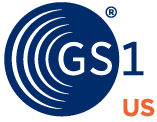GS1 US has been working with the U.S. Customs and Border Protection Agency (CBP) on the Global Business Identifier (GBI) Initiative, which aims to potentially replace the CBP Manufacturer Identifier Code (MID) with a more accurate and efficient identifier(s).
CBP is looking for brokers, self-filers, and forwarders to sign up for the Evaluative Proof of Concept (EPoC) to test different types of identifiers. Those entities required to use a GS1 Global Location Number (GLN) include manufacturer/producer or shipper/seller, which is essentially any entity that must be identified on U.S. Customs entry form.
Why You Should Get Involved
This is your opportunity to participate with CBP to help update import data collection and offer operational efficiencies and increased protection from counterfeiting. The long-term benefit is to potentially speed up the movement of products through customs.

Why Use a GS1 Gobal Location Number (GLN)?
The GLN provides businesses with the ability to know who is involved in transactions and where things are located throughout the supply chain. There is a continued need for greater accountability, efficiency, and visibility along the supply chain. GLNs help take the confusion out of sharing important information about companies and locations.
The GLN also:
- Captures rich metadata (ever-expanding based on need)
- Provides granularity; indicates specific locations within entity or supply chain role
- Links to GS1 System of Standards used by industry/government
- Provides master data about a business entity or location
- Connects to other data sources
- Adapts to current market/technology needs
- Improves visibility; enables product tracking throughout supply chain
- Increases accuracy and efficiency of order and invoice processes
- Removes need for proprietary identification codes that are not interoperable with trading partner systems

Getting Started: Join the Evaluative Proof of Concept
Join a community of participants to help streamline import location data collection. Please note, a business cannot issue GLNs on behalf of another business unless they are a subsidiary. After each stakeholder has GLNs, the Broker can register with CBP to join the EPoC.
1 | Confirm Existing Prefix
Confirm your company and trading partners have an existing GS1 Company Prefix.
Visit Verified by GS1 to validate and search for an organization's GS1 Global Company Prefix license.
If your organization has a GS1 Company Prefix, you can either create a GLN by accessing the GS1 US Data Hub: Getting Started with GLNs Guide, or use an existing one to be submitted for the CBP EPoC.
If you do not have an existing GLN or GS1 Company Prefix, go to Step 2.
2 | Obtain a GS1 Company Prefix or GLN
Choose a participating GS1 Member Office to obtain a GS1 Company Prefix or GLN if your company or trading partners do not have either one.
A GS1 Company Prefix allows you to create a GLN and a GTIN at no additional cost.
If you are outside the U.S., please find your associated contact here.
If you have general questions about the process or need assistance, contact Marshall Keener at mkeener@gs1us.org.
3 | Enroll your GLN(s) with CBP
Producer/Manufacturer/Shipper/Seller
Please provide your GLNs to the appropriate U.S. importer/broker, and to your local GS1 Member Office or GS1 US.
U.S. Brokers
Gather all the needed GBI identifiers to participate and submit them to CBP to be approved to join the EPoC. Once you are approved, you will submit the GLNs in the "Global Business Identifier" section within your Automated Broker Interface (ABI) application. Check to make sure your ABI software provider has made the updates for the GBI initiative.

